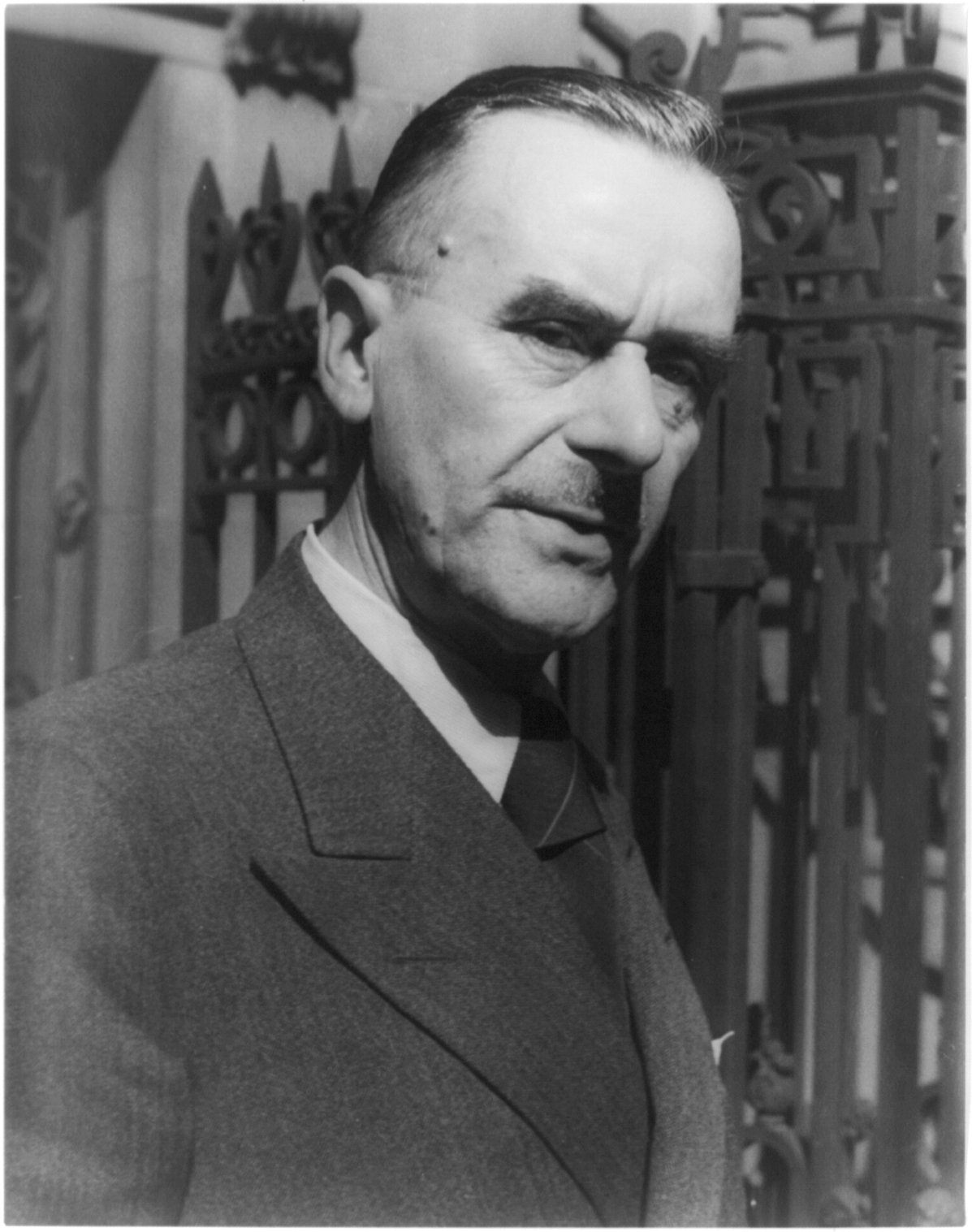„Ten, kto miluje viac, je podriadený a musí trpieť.“
Prisudzované výroky
Varianta: Ten kto miluje viac, je podriadený a musí trpieť.
Paul Thomas Mann bol nemecký spisovateľ, filantrop a esejista prvej polovice 20. storočia. V roku 1929 získal Nobelovu cenu za literatúru.

„Ten, kto miluje viac, je podriadený a musí trpieť.“
Prisudzované výroky
Varianta: Ten kto miluje viac, je podriadený a musí trpieť.
„Spisovateľ je človek, pre ktorého je písanie zložitejšie ako pre iných ľudí.“
Prisudzované výroky
Varianta: Spisovateľ je človek, pre ktorého je písanie ťažšie ako pre ostatných ľudí.
„Sklamanie je ako zmrznutá ruka: môže sa vyliečiť, ale vždy bolí.“
Prisudzované výroky
„Vojna je iba zbabelý útek od problémov v mieri.“
Prisudzované výroky
„Kto nepozná minulosť, nepochopí budúcnosť.“
Prisudzované výroky
“Time cools, time clarifies, no mood can be maintained quite unaltered through the course of hours.”
Zdroj: The Magic Mountain (1924), Ch. 7
Kontext: Time cools, time clarifies, no mood can be maintained quite unaltered through the course of hours. In the early dawn, standing weapon in hand, neither of the combatants would be the same man as on the evening of the quarrel. They would be going through it, if at all, mechanically, in obedience to the demands of honour, not, as they would have at first, of their own free will, desire, and conviction; and such a denial of their actual selves in favour of their past ones, it must somehow be possible to prevent.
“It is love, not reason, that is stronger than death.”
Varianta: Love stands opposed to death. It is love, not reason, that is stronger than death.
Zdroj: The Magic Mountain (1924), Ch. 6; variant translation: It is love, not reason, that is stronger than death. Only love, not reason, gives sweet thoughts. And from love and sweetness alone can form come: form and civilization.
Kontext: Love stands opposed to death. It is love, not reason, that is stronger than death. Only love, not reason, gives kind thoughts.
“Tolerance becomes a crime when applied to evil.”
Zdroj: The Magic Mountain (1924), Ch. 6, section, A Good Soldier as translated by Woods (1996), p. 506
“War is only a cowardly escape from the problems of peace.”
As quoted in This I Believe (1954), by Edward R. Murrow, p. 16
Varianta: War is only a cowardly escape from the problems of peace.
Zdroj: This I Believe: The Personal Philosophies of One Hundred Thoughtful Men and Women
“There are so many different kinds of stupidity, and cleverness is one of the worst.”
Zdroj: The Magic Mountain
“He probably was mediocre after all, though in a very honorable sense of that word.”
Zdroj: The Magic Mountain
“A harmful truth is better than a useful lie.”
Zdroj: The Magic Mountain
Zdroj: Tonio Kröger (1903), Ch. 9, as translated by Bayard Quincy Morgan
Kontext: I stand between two worlds, am at home in neither, and in consequence have rather a hard time of it. You artists call me a commoner, and commoners feel tempted to arrest me … I do not know which wounds me more bitterly. Commoners are stupid; but you worshippers of beauty who call me phlegmatic and without yearning, ought to reflect that there is an artistry so deep, so primordial and elemental, that no yearning seems to it sweeter and more worthy of tasting than that for the raptures of common-placeness.
“All interest in disease and death is only another expression of interest in life.”
Zdroj: The Magic Mountain (1924), Ch. 6
“Technology and comfort - having those, people speak of culture, but do not have it.”
Zdroj: Doctor Faustus
“Only love, and not reason, yields kind thoughts.”
Zdroj: The Magic Mountain
“What good would politics be, if it didn’t give everyone the opportunity to make moral compromises.”
Zdroj: The Magic Mountain
Settembrini's view of literature, Ch. 4
The Magic Mountain (1924)